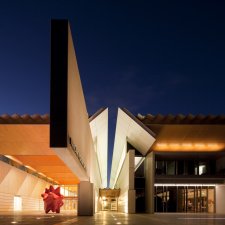- About us
- Support the Gallery
- Venue hire
- Publications
- Research library
- Organisation chart
- Employment
- Contact us
- Make a booking
- Onsite programs
- Online programs
- School visit information
- Learning resources
- Little Darlings
- Professional learning
William Lamb, second Viscount Melbourne (1779–1848), statesman, was Prime Minister of Britain in 1834 and from 1835 to 1841. Eton and Cambridge-educated, Lamb entered parliament in 1806 as a Whig member of the House of Commons. He married Caroline Ponsonby,
a poet, in 1805, although the marriage was unhappy, Lady Caroline’s various affairs – including one with Lord Byron – being common knowledge. The marriage ended in 1825. In 1827, Lamb was appointed Chief Secretary for Ireland; the following year, on the death
of his father, he inherited the title Viscount Melbourne and took up his seat in the House of Lords. Home Secretary under Lord Grey from 1830, he became Prime Minister when Grey resigned in July 1834 and was re-elected the following year. Melbourne became an important mentor and adviser to Queen Victoria on her coming to the throne in 1837 despite the scandal of his failed marriage and other indiscretions. Melbourne resigned as Prime Minister in 1841. In March 1837, almost two years after its establishment by Tasmanian pastoralists, the Port Phillip Bay settlement was officially named Melbourne, in honour of the then Prime Minister, by the Governor of New South Wales, Richard Bourke.
Collection: National Portrait Gallery
Purchased 2013
Sir George Hayter (age 47 in 1839)
Charles Turner (age 65 in 1839)
William Lamb (age 60 in 1839)



On one level The Companion talks about the most famous and frontline Australians, but on another it tells us about ourselves.



Visit us, learn with us, support us or work with us! Here’s a range of information about planning your visit, our history and more!



We depend on your support to keep creating our programs, exhibitions, publications and building the amazing portrait collection!